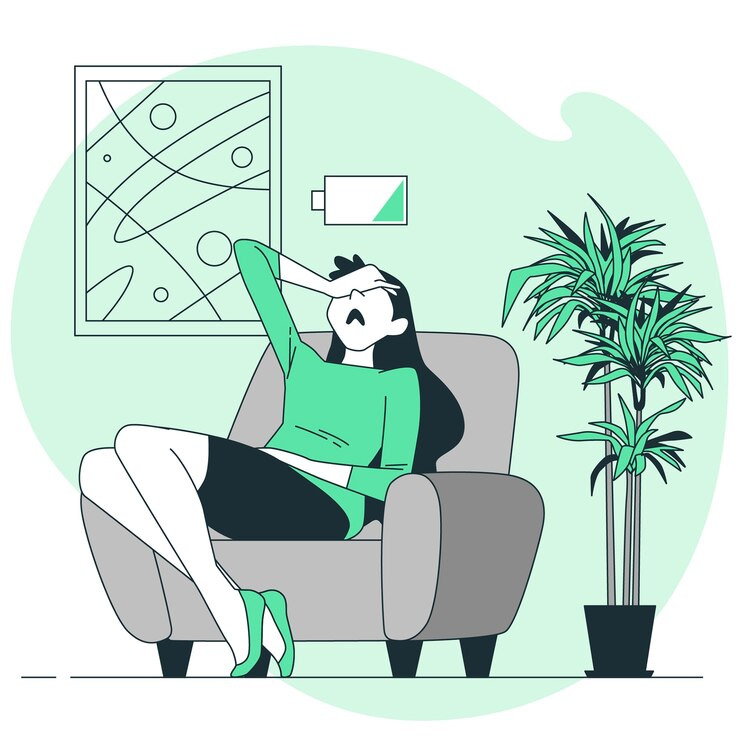The Loneliness No One Told Me About
5 Questions Every Founder Should Ask About Loneliness
Hi, I'm Manuel Saez, 2x Founder, Award-Winning Designer, and Emotional Intelligence Coach 🌻 Here I Share the advice I wish I had while building my businesses ➜ I love fixing old motorcycles 🛵🏍️
Reading time: 7 min.
Contents:
The Higher You Go, The Lonelier It Gets
Awareness: Recognizing the Signs of Loneliness
Five Questions That Helped Me Deal with Founder Loneliness
➜ Who can I talk to about this?
➜ Have I set the right boundaries around work?
➜ Is there a community I can be part of to help me through this?
➜ Am I taking care of myself in the right way?
➜ What’s one thing I can celebrate today?
Complementary Insights
Closing Thoughts
The Higher You Go, The Lonelier It Gets
The higher you climb in your professional life, the lonelier it often feels.
And nothing feels lonelier than being a solo founder.
When I started my last company, I felt an undeniable calling—a mission I couldn’t wait to pursue.
Waiting to find the perfect co-founder wasn’t an option. So, I started it alone, and the first few years were tough.
The early stages of a startup are always the hardest, and even though I had my wife’s unwavering support, along with friends, advisors, and a small team, I still felt profoundly alone.
It was the kind of loneliness where you feel like the weight of the world is on your shoulders.
I believed I couldn’t let myself feel sad or vulnerable. If I did, I thought I might lose the trust of my team or the confidence of my investors.
By the third year of my startup, I met Sebastian. He complemented my skill set on the technical side, and we shared great chemistry.
He became my co-founder, and things started to improve. Not just because there were now two of us, but also because I had begun to understand why I felt lonely and had worked on myself to address it.
Having a co-founder helps, but it’s not enough if you don’t deal with the underlying issues that keep you feeling lonely.
In this essay, I want to share some of the questions I asked myself during that time—questions that helped me recognize loneliness for what it was and take actionable steps to overcome it.
Awareness: Recognizing the Signs of Loneliness
One of the hardest parts about founder loneliness is realizing it’s happening. It doesn’t always feel like sadness or isolation.
Instead, it hides behind behaviors we’ve normalized in our daily grind.
Founders are especially vulnerable because we invest so much of ourselves into our businesses, often at the expense of meaningful connections.
Loneliness shows up in subtle ways, often mistaken for the demands of entrepreneurship. Here’s how it might manifest:
Withdrawing from Relationships:
Avoiding calls or canceling plans because you feel like no one will understand what you’re going through. Even when you engage with others, interactions feel surface-level, leaving you longing for deeper connections.Overworking to Fill the Void:
Throwing yourself into work not out of ambition, but as a distraction from emotional emptiness. Those late nights and endless to-do lists might be masking the need for connection.Avoiding Vulnerability:
Hiding your struggles because you fear it will be perceived as weakness. You wear a mask of resilience, but it only deepens the sense of isolation.Filling Time with Surface-Level Interactions:
Surrounding yourself with people at networking events or team meetings but still feeling a disconnect. These interactions lack the emotional depth that makes you feel truly understood.Seeking Solace in Solitude:
Spending more time alone, and convincing yourself it’s a preference when in reality, it stems from not knowing how to re-engage with others.Feeling Like an Outsider in Your Own Success:
Even in moments of achievement, there’s a gap between external recognition and personal connection. It’s the paradox of feeling alone at the top.
Recognizing these patterns isn’t about assigning blame or shame; it’s about becoming aware of how loneliness is shaping your life. Once you see it, you can begin to address it.
Five Questions That Helped Me Deal with Founder Loneliness
When I finally recognized the patterns of my loneliness, I knew I needed to take action—not just for my mental health but for the success of my company.
I asked myself many questions, but these five I believe are the ones that put me on the right path:
➜ Who Can I Talk to About This?
When loneliness set in, my first instinct was to keep everything bottled up. I thought showing vulnerability would make me look weak, especially as a leader.
But I learned that reaching out to the right people wasn’t a sign of failure—it was a lifeline.
For me, the “right people” were a mix of trusted friends, fellow founders, and mentors who understood the pressures of building something from scratch. Talking to someone who had walked a similar path helped me realize I wasn’t alone.
Sharing even one small challenge lifted a weight off my shoulders and reminded me that connection doesn’t have to mean baring your soul all at once.
Tip: Start with one person you trust. It could be a close friend or a fellow entrepreneur. Share something simple, like a tough decision you’re grappling with or a recent win you haven’t celebrated yet. Notice how it feels to open up, even just a little.
➜ Have I Set the Right Boundaries Around Work?
Work can be an easy refuge when loneliness strikes.
I used to convince myself that working longer hours was necessary—that if I just pushed a little harder, things would fall into place.
But in reality, I was using work as a way to avoid confronting my feelings of isolation.
Setting boundaries didn’t come naturally to me. At first, I felt a lot of guilt, like I was letting my team down by stepping away. But over time, I realized that carving out time for myself made me a better leader.
It gave me space to recharge and reconnect with the people who matter most, like my wife, who had always been my biggest supporter.
Tip: Start by blocking off one evening or weekend for personal time. Use that time to reconnect with someone you care about or do something just for you—whether it’s dinner with loved ones, a walk in nature, or even reading a book. Boundaries aren’t about doing less; they’re about doing what matters.
➜ Is There a Community I Can Be Part of to Help Me Through This?
I used to think being a solo founder meant I had to do everything alone. But joining a community of like-minded people changed everything.
It wasn’t just about networking or finding business opportunities—it was about finding people who truly understood the unique challenges I faced.
For me, communities of other founders were especially transformative. Hearing their stories, struggles, and successes made me feel less isolated. I wasn’t the only one facing sleepless nights or tough decisions.
Their insights gave me new perspectives and their support made the journey feel a little lighter.
Tip: Look for communities where you can connect with others who share similar experiences. This could be local meetups, online groups, or industry-specific networks. Don’t be afraid to show up as yourself—it’s often in those honest moments that the strongest connections are made.
➜ Am I Taking Care of Myself in the Right Way?
For years, I treated self-care as an afterthought, something I’d get to “once the business was stable.”
But neglecting my well-being only made me feel more isolated and burned out. I realized that self-care wasn’t a luxury—it was a necessity.
Taking care of myself didn’t mean overhauling my life overnight. It started with small, intentional actions. A 10-minute walk outside, journaling my thoughts, or even just sitting quietly with a cup of coffee became anchors in my day.
These moments reminded me to slow down and reconnect with myself, which ultimately made me more present for my team and family.
Tip: Identify one small habit you can add to your daily routine, like a brief mindfulness exercise, stretching, or taking a walk. Self-care doesn’t have to be time-consuming—it just needs to be consistent.
➜ What’s One Thing I Can Celebrate Today?
When you’re in the trenches of building a company, it’s easy to overlook your progress. I used to focus so much on what wasn’t working that I forgot to acknowledge what was.
Over time, I realized that celebrating even the smallest wins helped shift my mindset from scarcity to gratitude.
I started keeping a journal where I’d jot down one thing I was proud of each day.
It didn’t have to be monumental—sometimes it was as simple as having a great conversation with a team member or resolving a tricky problem.
Looking back on those entries became a powerful reminder of how far I’d come, even on the days when progress felt slow.
Tip: Try keeping a “win journal.” Each day, write down one thing you achieved or felt good about. It could be big or small—what matters is acknowledging your efforts. Over time, this practice can help you focus on the positives and find joy in the journey.
Complementary Insights
If you want to explore more about founder loneliness, I’ve written another essay that dives deeper into the topic. It includes strategies for building connections and finding balance. You can read it here.
Closing Thoughts
These five questions helped me not only understand my loneliness but also take actionable steps to move through it.
The answers weren’t always easy, but they taught me that connection—whether with others or with myself—is the antidote to isolation.
If you’re struggling with founder loneliness, know that you’re not alone. It’s a challenge, but it’s also something you can navigate with the right tools and support.
Start small, ask yourself these questions, and take it one step at a time.
I’m here to listen if you need someone to talk to. Schedule a free call here.
Sending you good vibes 🌻
Manuel Saez






I like the idea of a "win journal" it forces us into a positive mindset 😊
Great post as always, Manuel!